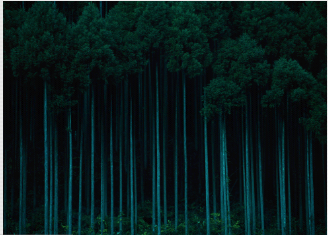Reports from the Knowledge Labs about our recent findings, research topics, and interviews with lifestyle leaders who are creating their own futures.
|
|
| |
How to stimulate your own powers of foresight. Consider the following thought provokers. Ask yourself, in these categories what are the brand new trends and forces? Which are the ones growing in importance? Which current forces are loosing their steam? Which have peaked or are reversing themselves? Which are the "wildcards" about to disrupt us in the future? POLITICAL AND TECHNICAL thought for food: Electronics, Materials, Energy, Fossil, Nuclear, Alternative, Other, Manufacturing (techniques), Agriculture, Machinery and Equipment, Distribution, Transportation (Urban, Mass, Personal, Surface, Sea, Subsurface, Space), Communication (Printed, Spoken, Interactive, Media), Computers (Information, Knowledge, Storage & Retrieval, Design, Network Resources), Post-Cold War, Third World, Conflict (Local, Regional, Global), Arms Limitation, Undeclared Wars, Terrorism, Nuclear Proliferation, Weapons of Mass Destruction, Governments (More/Less Power and Larger or Smaller Scale), Taxes, Isms: Nationalism, Regionalism, Protectionism, Populism, Cartels, Multinational Corporations, Balance of Trade, Third Party Payments, Regulations (OSHA, etc.) Environmental Impact, U.S. Prestige Abroad. SOCIAL AND ECONOMIC Food for thought:
Labor Movements, Unemployment / Employment Cycles, Recession, Employment Patterns, Work Hours / Schedules, Fringe Benefits, Management Approaches, Accounting Policies, Productivity, Energy Costs, Balance of Payments, Inflation, Taxes, Rates of Real Growth, Distribution of Wealth, Capital Availability and Costs, Reliability of Forecasts, Raw Materials, Availability and Costs, Global versus National Economy, Market versus Planned Economies, Generations: Y, X, Boomers, Elderly, Urban vs. Rural Lifestyles, Affluent vs. Poor, Neighborhoods and Communities, Planned or Organic Growth.
Got Knowledge?
|
|
| |
|
|
|
|
The Journal of 2020 Foresight
|
|
| |
|
Friday, September 15, 2006

Internet Logging Tools for Thinning the Forest to See the Trees
Chapter Four: The Tribal Territories
By Steve Howard, CKO
The Knowledge Labs
Table of Contents
Chapter One: Basecamp
Chapter Two: The Ridge
Chapter Three: The Outpost
Chapter Four: The Tribal Territories
"The Internet is the greatest force for commoditization known to man…. Manufacturers must experientialize their goods…. As the experience economy unfolds, many experience stagers won't stay in business.”
B. Joseph Pine II and James H. Gilmore, “The Experience Economy”
DOUBLE NICKEL RANCH. During the research process expect to experience the extremes – from knowing very little about the three regions at the top of your list to becoming swamped with too much information. It’s easy to miss the forest for the trees.
Journal of 2020 Foresight: How do you go about a field survey?
Eagle: The simple answer is to identify factors about a place to live that are important to you. List and discuss with your mate, family and friends the things you liked or disliked about the various places you have thus far lived.
Explorer: Visit the Sperling Best Places Website and consider the Ten Best Places lists. They’ll help you as you make two lists: one of your likes and the other of the dislikes.
J2020F: Do either of you – or for that matter does Pathfinder – have idea-sparks?
Explorer: To get you started you might consider any of following categories: climate, weather, temperature, rainfall, winds, dust, seasons, humidity, pollution, topography or terrain and open space.
Eagle: Also – status and affluence, ethnic groupings or communities, the pace of life, congeniality of people, and cost of living -- food, housing, clothing.
J2020F: Or – the political or legal climate, corruption or its absence, crime rate would be on my lists.
Explorer: Consider -- the arts and educational facilities or entertainment available. Compare closed-ness or openness of the community, accessibility, or remoteness.
Eagle: Weigh urban versus rural, most hospitable to entrepreneurs, access to the country or to city, to mountains or to beaches.
Explorer: Also architecture, degree of sophistication, cosmopolitan, high or low-rises, safety of streets, heaviness of traffic.
J2020F: What about the standbys: school system, libraries, churches, medical system, and other services?
Explorer: Certainly. You might consider: public transportation, freeways, rapid transit, family health services.
Eagle: I include: parks, camping, sports, skiing facilities nearby, water nearby.
Explorer: Or private golf, tennis, beach or skiing communities.
J2020F: Perhaps the kind of help available, expensive or inexpensive and costs, and free things to do?
Eagle: Sure. Also population density, turnover, the degree to which people know each other. Types of restaurants, friendliness of the people, proximity to friends. And if it has a variety of things to do. Like, the number of Starbucks?
Explorer: Especially a variety of activities that match your interests.
Eagle: What about community indicators like: town identity, unity, cohesion, attitude of people toward civic responsibility.
J2020F: For my wife --department stores and shopping malls.
Eagle: And finally a catchall: color, excitement, neighborhood or community where your lifestyle didn't matter or did; miles between home and work, t.v. radio, and f.m. stations.
Eagle: A place with a sense of history, or not.
J2020F: For investment purposes: growth; controlled or uncontrolled and the impact on tax rates and property values.
Eagle: Of more importance, lately -- a liberal or conservative community.
Explorer: I have more mundane items I’d consider like mail service, cleanliness of the streets; garbage disposal system, pest control and types of housing.
J2020F: I’m sorry I asked. Are we almost done?
Eagle: We are. And here’s the good news. You don't have to use all of these factors, just the ones that interest you so you can discover what make a place good for you, or bad for you and your loved ones.
J2020F: What do we do with our lists?
Explorer: Choose a method to rank your priorities in each list -- your likes and your dislikes. Most important likes go to the top and your dislikes go to the bottom.
J2020F: And, then what?
Got Knowledge?
Copyright ©2002 - 2006 Aarnaes Howard Associates. All rights reserved worldwide.
7:25 AM
|
|
| |
|
|
|